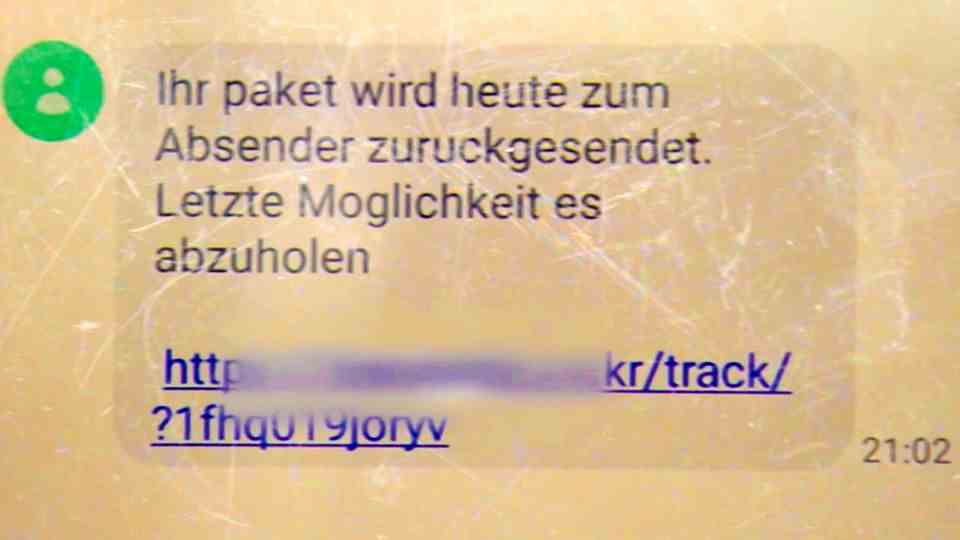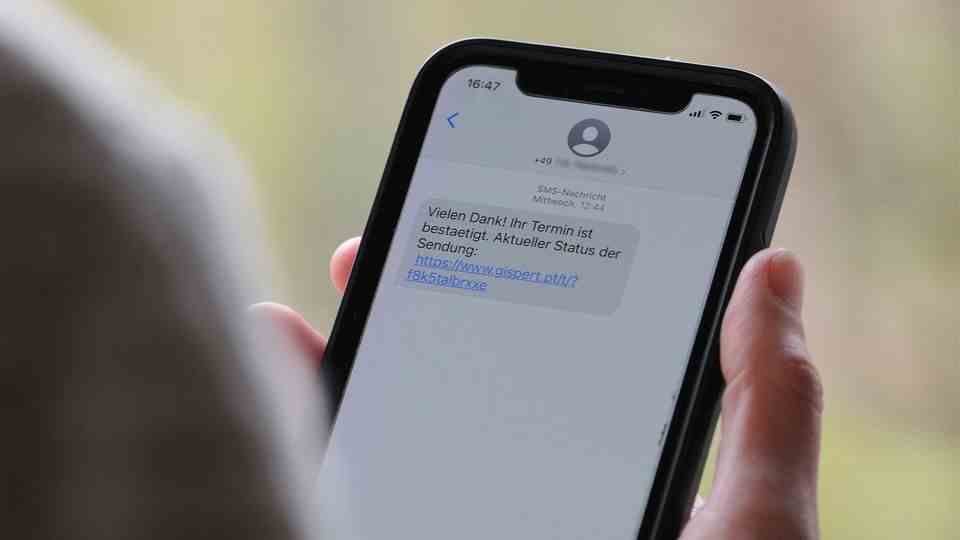30 years of SMS
From HDGDL and Smileys to Angela Merkel – a little history of SMS
Former Chancellor Angela Merkel steered the government and the party via SMS
© POP-EYE / Imago Images
The first SMS was written 30 years ago. Since then, short messages have fundamentally changed the way we communicate. Time for a little cultural history of SMS.
Actually, Neil Papworth was way too early. The Briton sent the world’s first text message 30 years ago. The content: “Merry Christmas” – and that on December 3, 1992, three weeks before Christmas. Papworth recounted this later, when the meaning of his message was already clear, saying that the recipient, a Vodafone executive, had just been to a Christmas party.
Content and timing of the SMS were not the only remarkable thing about it. Because Papworth sent the message from a giant computer the size of a fridge to the recipient’s cellphone. That didn’t have much to do with SMS, as almost everyone later knew them. But this is exactly where the triumph of the “Short Message Service” began.
SMS: Text messages with 160 characters are changing communication
The idea was also impressive: short, concise text messages with a length of no more than 160 characters, sent from one user’s mobile phone to another in a matter of seconds. This created a completely new form of communication. She filled the gap between the direct conversation on the phone and the written exchange in the form of letters or postcards, where the recipient only receives the message after a significant delay. SMS offered an almost instantaneous transmission, in which the communication was still asymmetrical – that is, both parties did not have to be present at the same time as in a telephone conversation.

With the further development of technical standards and the increasing spread of mobile phones in society, SMS has increasingly become the means of communication of choice – especially among younger people. And so the short messages not only established themselves as a new way of conducting conversations or exchanging information. They also changed language and communication culture. Even the most communicative contemporary had to have said everything in 160 characters if they didn’t want to shell out the cost of another message. Abbreviations were created that were intended to express whole emotional states with a few letters: hdgdl, lol, omg. Those who couldn’t decipher that usually only understood the station.
SMS to ex-partners that were never sent
Writing an SMS was still a lot of work
Back then, emojis were still called smileys – and you needed some imagination to be able to figure out what they were supposed to express: colon brackets closed. So the short messages should convey what this form of communication necessarily lacked, namely facial expressions, gestures, undertones. That misunderstandings were often not long in coming, which is one problem. The other, much greater in the eyes of many critics, was that language and humanity were allegedly left behind. “An SMS lacks feeling and cordiality,” said the then head of the German Spelling Council in 2012. “If you only communicate in an abbreviated form, the language suffers.”
Yes, expressing great feelings in writing via mobile phone was frowned upon. Thousands of teenagers and the German media landscape were outraged when in 2003 Alexander Klaws, the first winner of “Deutschland sucht den Superstar” allegedly broke up with his girlfriend via SMS – which he later denied. Apparently, one could not have imagined more coldness of heart at the time. At the same time, texting – everyone under 25 has to realize that – was still a lot of work back then: on a conventional cell phone with a button, you had to press a total of twelve times to say a simple “hello”. Twice the four, once the two, then twice each three times the five and three times the six.
Every message costs money if you don’t already have a plan with a flat rate. Everything had to be well thought out, fragmentary communication like today, in which a sentence is formulated over three messages, was unthinkable because it was simply inefficient. And for heaven’s sake, later, when that was possible, you weren’t allowed to send an MMS, even by mistake. It was at least as bad as getting the internet icon on your phone bone that made every teenager fear their entire family would now die impoverished.

Angela Merkel even governed by SMS
Over the years, the SMS has become a means of mass communication in almost all social classes – and finally, under Angela Merkel, also a tool of power. The CDU chancellor was known for governing by cell phone and using her short messages to steer the fortunes of both the state and her party. Finally, during the corona pandemic, SMS was on everyone’s lips again: when confidential information from the prime minister’s conferences ended up on journalists’ cell phones.
It is doubtful whether it was really still about classic SMS and not about Whatsapp messages or the like. But that is also an indication of the success of the SMS: it has become a code for a cultural technique beyond its actual technical form. Conventional SMS has been doing badly for a long time, messengers like Whatsapp, Threema, Telegram or Signal have outstripped it. They are easier to use, more visual, offer more options. Actually, text messages are only written in emergencies – that is, when there is no internet connection. While 10.4 billion SMS were still being sent in Germany on the 25th birthday in 2017, in 2021 it was only 7.8 billion. But: The number has increased again compared to the previous year, for the first time in almost ten years. Maybe the SMS isn’t quite finished yet.


